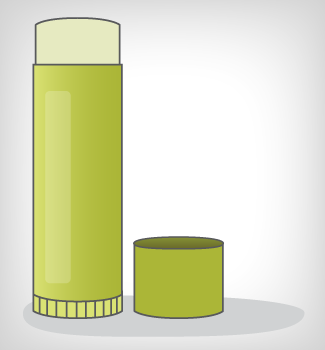
Use a lip balm or ointment that acts as a buffer between lips and the elements.
Chances are you’ve already struggled with dry, chapped lips this winter, but no longer. Get your lips in shape fast, with a few simple tips.
Why your lips are dry
Lips have a very thin surface layer of skin and are more prone to dryness, according to Dr. Erik Stratman, a Marshfield Clinic dermatologist.
Midwest winters expose lips to sun, cold, wind, dry air and low humidity, which can dehydrate skin and lips. This combo, along with some medications, can result in very fragile skin that can develop splits and cracks.
Chapped lip no-no’s
“Don’t lick your lips when they start to get dry,” Stratman said “This makes dryness and chapping even worse since your saliva contains chemicals that break down your skin health further. The water in saliva also evaporates, drying out skin even more.”
Also, Stratman said, don’t scrub, peel or bite off skin flakes. This can lead to bleeding and pain, slow healing and further irritate your lips.
Healthy lip tips
To get lips in good, healthy shape, Stratman said, use a lip balm or ointment that acts as a buffer between lips and the elements.
Skin heals best when moisture is held in place by these ointments or balms, providing maximum hydration, Stratman said. Petrolatum or bees wax are common ingredients. Castor seed oil, sunflower seed oil, or squalane can also nourish cracked lips.
Other good-lip tips include:
- Avoiding products in little pots since it may not be as sanitary as a tube applicator.
- Wearing lip balm when you go to bed since you may sleep with your mouth open, which causes dry lips.
- Buying balm that has SPF 15 or higher to keep lips protected from the sun.
- Keeping air in your home moist by using a humidifier to keep skin’s moisture levels appropriate.
- Drinking water to help fight dehydration.
- Breathing through your nose as much as possible.
- Avoiding smoking or using chewing tobacco. Anything you regularly put in contact with your lips can affect their condition, especially chemicals in cigarettes.
- Choose thick and bland lip balms with very few ingredients on the label. These are less likely to cause skin allergies.
If chapping is severe and doesn’t respond to treatment at home, consult your doctor. Rarely, persistent chapped lips may indicate an underlying medical problem or yeast infection.

